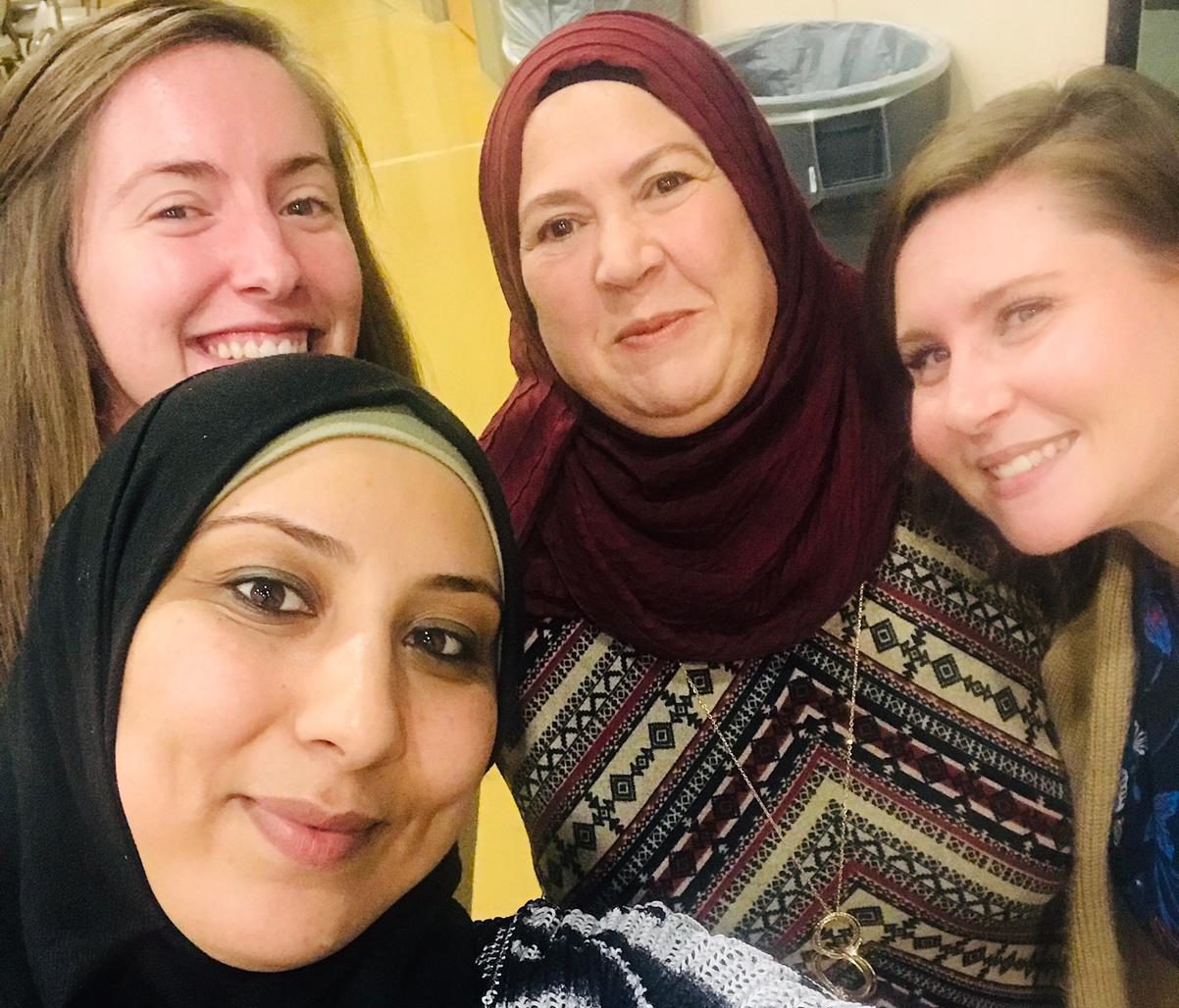Recently, I found myself enjoying the hospitality of my co-workers. It was the Friday in between Christmas and New Years’, and the CWS office was quiet. I had eaten an early lunch, and by early afternoon, Doha and Ghaisha finally realized they were hungry too. They stepped downstairs to buy a couple of meals for themselves.
When they returned with their take-out, I was the only other person in the office. They looked at each other, looked at me, and said, “Come on—we cannot eat this in front of you! Have some food. Eat!” I demurred at first. After all, I had already eaten. They, however, seemed horrified at the idea of eating in front of me without sharing some.
Doha got a plate and dished me up a chicken tender and fries. I joined them at the table, and we all began eating together.
As we ate, Doha told me of a Hadith that advises people to share a meal because food is barakah, the Arabic word for blessing. “The food of one person suffices for two. The food of two persons suffices for four.”
We began discussing cultural practices surrounding meals. Doha and Ghaisha both shared their struggle adjusting to the American practice of eating food in front of people without sharing. As they spoke, I reflected on days in the office when I had eaten some peanut butter crackers without offering one to my desk-mate. Doha smiled and continued, “I think it is better to share. I will keep that tradition.” She is wise to do so.
Although the mission of CWS is to welcome refugees to Greensboro, the past few months of working among these newcomers have reinforced the idea that welcome is indeed a two-way street. For long-term Greensboro residents, welcoming strangers feels like an option, and CWS hopes that people will take advantage of this option. For refugees, however, welcoming new people and traditions is a lifestyle—a necessity born from being forced to flee the comfort of familiarity.
As we each seek to welcome the stranger (whether refugee or US-born), here are a few tips garnered from the examples of former refugees in Greensboro:
1. Be curious. If you have absolutely no interest in something outside of what you already know, welcoming strangers will prove difficult, if not impossible. Ajuwa, a refugee from the Democratic Republic of Congo, recently told me that he hopes to learn Spanish. Early last year, he arrived in Greensboro already speaking English and four other languages. Yet, he realized that a strong Spanish-speaking community exists in this city, and he is eager to engage it. It’s been awhile since I brushed up on my Spanish. His own openness to learn something new, however, challenged me to look with fresh, curious eyes on the unfamiliar around me.
2. Be discerning. New arrivals have consistently mentioned to me the need to adjust to a new culture and be flexible in a place that must seem quite strange to them. After all, refugees in Greensboro have landed in a city that puts pimento cheese on every local food item (#thankful) and that has statues of pants all over downtown (it makes sense only after you understand the Wrangler connection!). Refugees must ask themselves, “What traditions do we keep? What do we leave behind?” Doha, who arrived as a refugee in 2016 and now works as a Case Aid at CWS, continues to cling to her tradition of sharing food with those who have none. As she said, “You never know if that will be the only food that someone has for the day.” Welcoming the stranger involves discerning what is worthy within the habits of your life and discarding those practices that have been exposed as unhealthy.
3. Be grateful. Ibrahim resettled with his family in Greensboro in 2012. Last year, the CWS attorney helped him apply for and receive his US citizenship. In speaking about all the people who helped him and his family along the way—from resettlement, to practicing English, to legal services—he said, “We will never forget you.” He was profoundly grateful. Sometimes, we deceive ourselves into believing that we do not need anyone—especially a stranger who does not seem to fit into our world. Yet, maintaining a spirit of gratitude means acknowledging 1) we needed something and 2) someone or something outside of our own self fulfills that need. Moments of thankfulness ward off loneliness and despair. When we recognize our interconnectedness and dependence on the well-being of other people, we stop being fearful and we start being grateful.
I hope in 2019 that we all can be curious like Ajuwa, discerning like Doha, and grateful like Ibrahim. May we welcome the stranger, and may we do it well.


